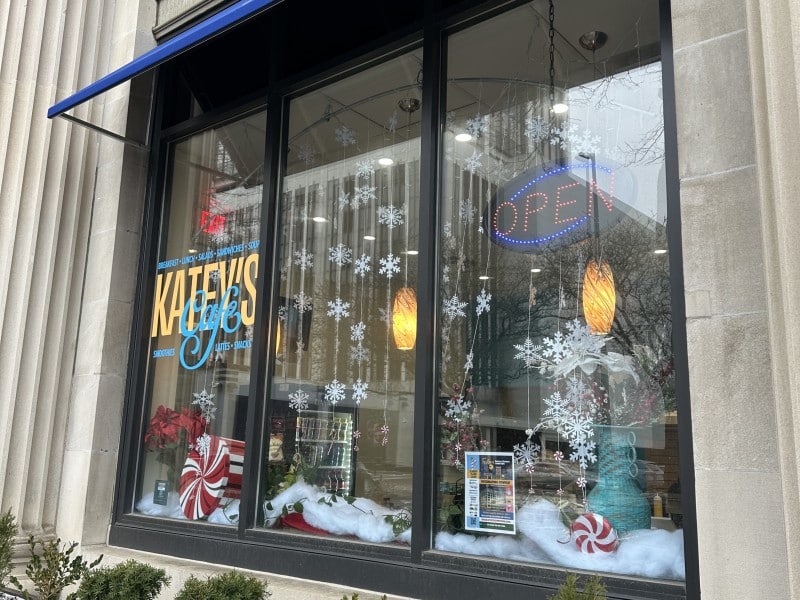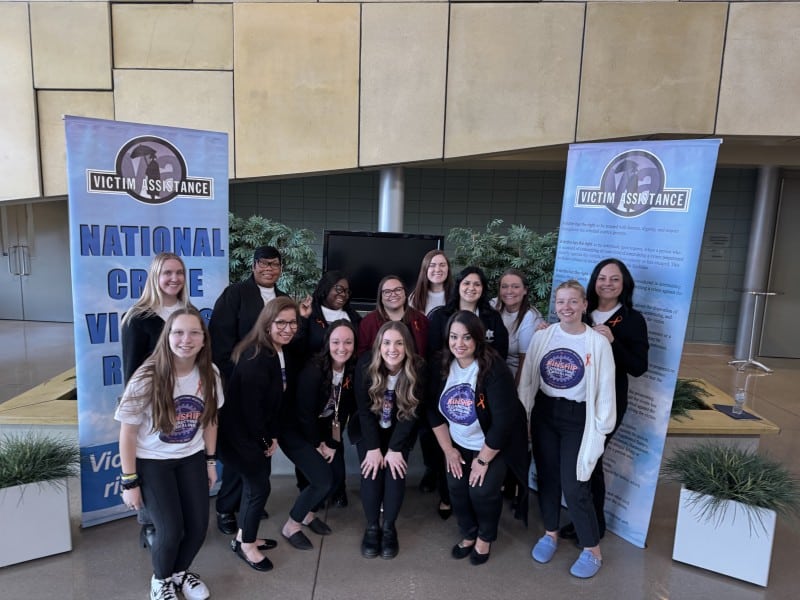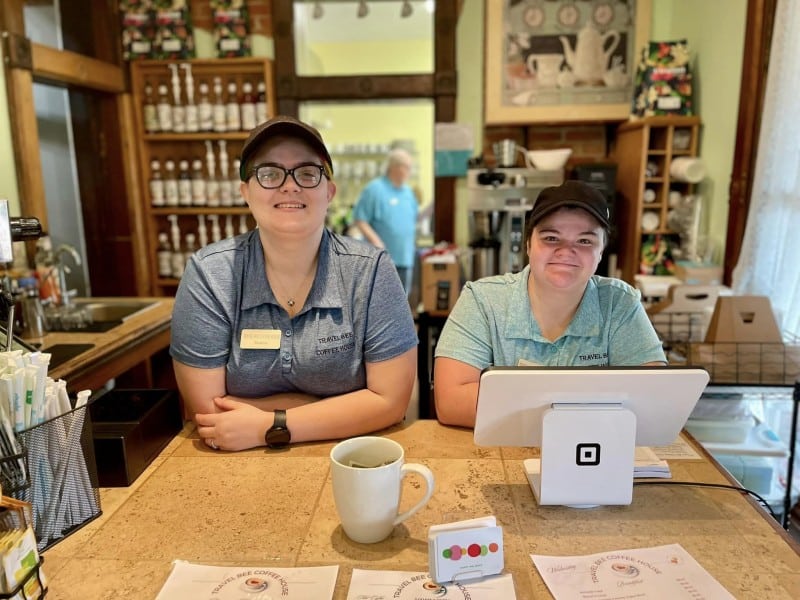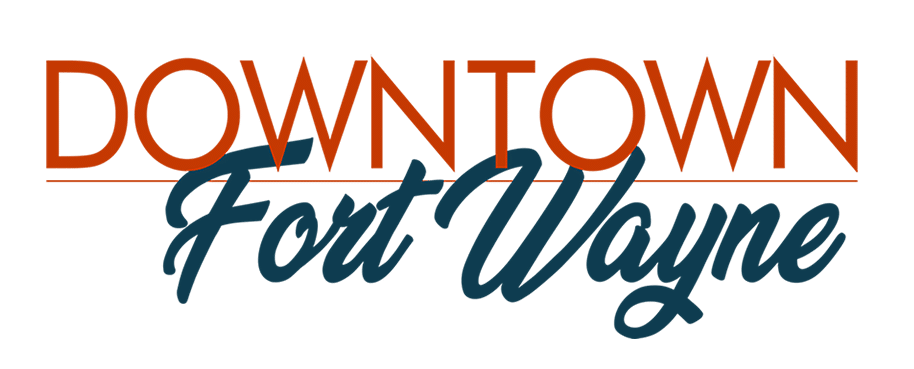An ‘affordable’ city? Service workers say COVID reveals critical gaps in Fort Wayne’s housing system
As summer begins and the U.S. emerges from the pandemic, the crisis is still escalating for service agencies navigating housing and eviction challenges.
Before the COVID-19 pandemic began, about eight people a day were being evicted in Fort Wayne.
While the Summit City has long been lauded as one of America’s “most affordable” places to live, and while the housing market is booming among those who can afford to buy, the situation among those who can’t afford homes and must rent is starkly different.
In 2016, Fort Wayne ranked No. 13 on a list of top-evicting cities in the U.S. compiled by the national Eviction Lab. Since the pandemic started, the situation has grown worse.
Community leaders, like Pam Brookshire, Vice President of Community Services at the social services nonprofit Brightpoint, have seen the effects of this firsthand.
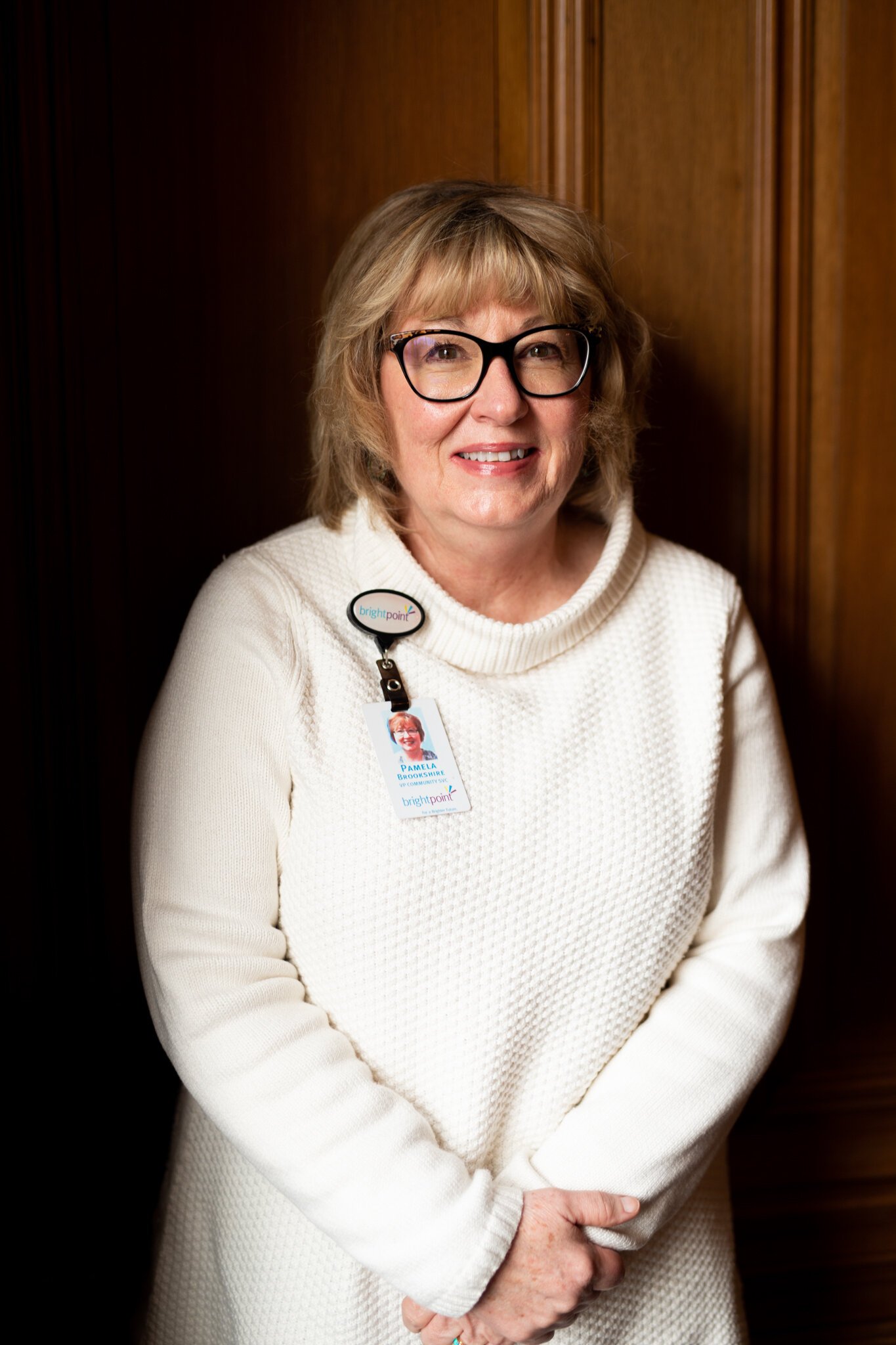
In her role, Brookshire (and her team) manage most of Brightpoint’s direct services to clients. She says even before the pandemic, many Northeast Indiana households were at risk of eviction, the effects of which are far-reaching, including financial, legal, and emotional costs.
Now, with a June 30 deadline looming for the federal moratorium on evictions, Brookshire expects public and private agencies like hers to be flooded with requests for help. That’s because during the provisional period, landlords could not legally evict tenants for non-payment. However, come July 1, tenants are going to owe landlords back-rent for all of the months it was put off.
As summer begins and the U.S. largely emerges from the pandemic, the crisis is still escalating for service agencies navigating these challenges.
A year behind on rent
The scope and scale of the housing challenges facing Fort Wayne’s most vulnerable residents was evident to Brookshire and her team even last summer, only a few months into the public health crisis.
Fort Wayne has long had a shortage of safe Section 8 housing and affordable housing for those on the brink of Section 8. But when the moratorium on evictions began, Brookshire confronted a deeply unsettling reality that’s happening in Fort Wayne and across Indiana.
“The housing system is actually relying on people to get evicted to provide enough housing for everyone who needs it at any given time,” Brookshire says. “When the pandemic and moratorium on evictions began, there was truly no place for a lot of families and individuals to go.”

As a result, Brightpoint’s team was putting residents up at local hotels for the time being. Now, going into the summer of 2021, the problem is only exacerbated, even for those who were able to remain housed.
“We have been helping clients, who are, at this point, a year behind in their rent, and we’re trying to keep them in their homes,” Brookshire says. “The eviction moratorium (deadline) keeps moving, which keeps changing their status, as well. This is one reason why they’re now a year behind on rent.”
In such cases, Brookshire says Brightpoint is usually able to help address residents’ needs by using funds allocated specifically for COVID-19 relief.
“Right now, we’re still working with COVID relief emergency solutions grants,” she says. “We’ve helped about 168 households with that program across nine counties. We’ve also helped a number (of households) through Community Services Block Grant (CSBG) COVID relief funds, and with private foundation dollars, especially the ones created through the consortium the Allen County United Way put together. We’ve been blessed with a lot of different funding. It’s been rare that there was a situation in which we couldn’t help.”
While circumstances may vary case-by-case, Brookshire says there are some commonalities.
Most of Brightpoint’s emergency housing assistance clients live in the city of Fort Wayne, though they do see their fair share of cases in Wells and Huntington counties, too. Families also tend to be among the working poor, so they have jobs, but their workplaces may have shut down at some point during the pandemic. On top of this, they might have lost childcare, which also affects their ability to work.
But perhaps what’s most concerning is the people who fall in between the cracks, so to speak, Brookshire says. The federal unemployment premium program can disqualify these residents, in a lot of cases, for some of the newer housing assistance programs. That’s because they often exceed the maximum income for programs, yet still can’t afford their monthly obligations.
“It’s always a catch-22,” she says. “It’s great to see that people are getting a decent amount of unemployment (insurance), but it can cause issues on the backend, as well.”
Uncertainty abounds
This housing conundrum is something Andrew Thomas is familiar with, too. He’s an attorney with Indiana Legal Services (ILS) and runs the Tenant Assistance Legal Clinic, which provides free legal advice and representation to Fort Wayne residents.
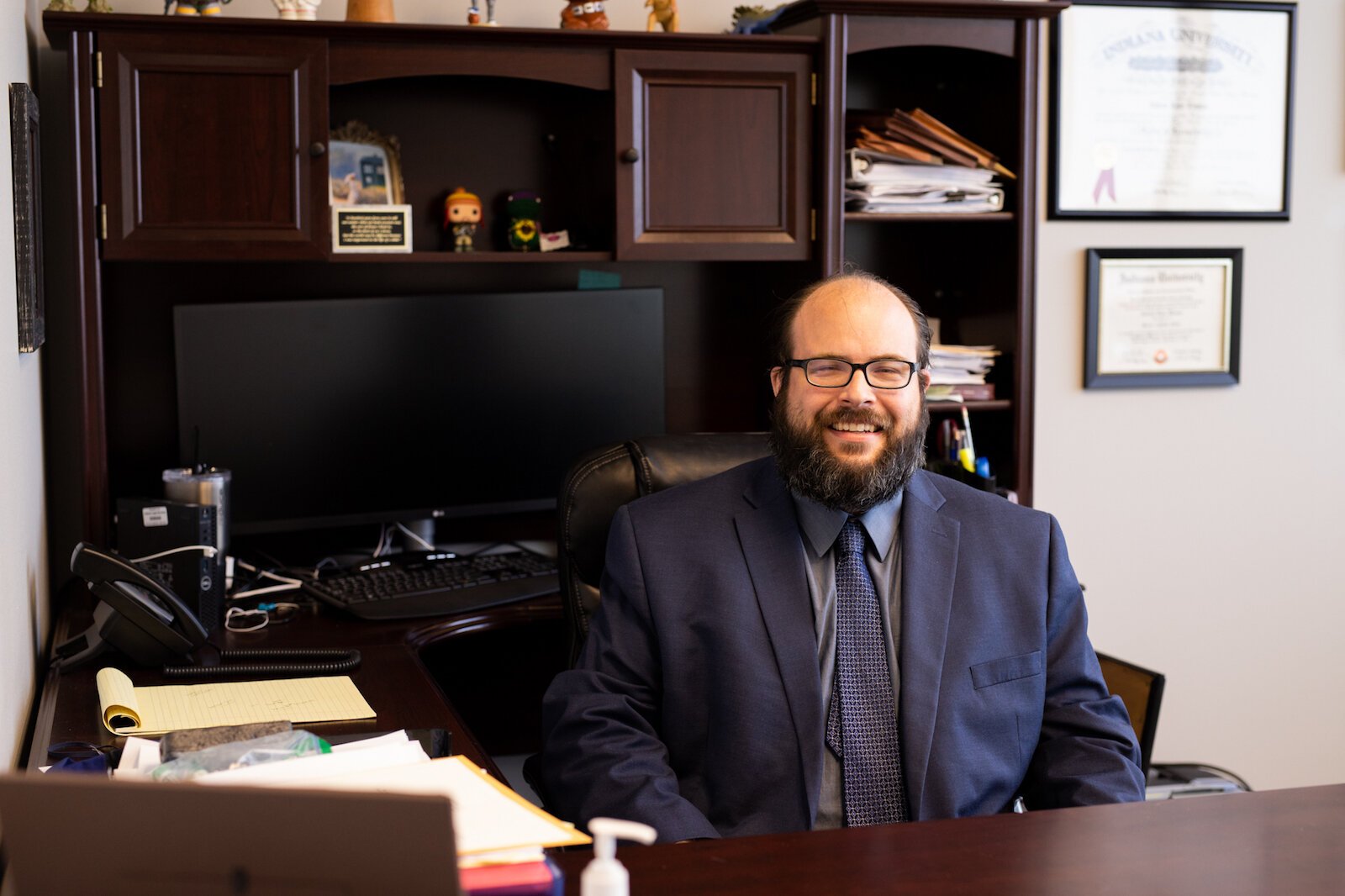
According to Thomas, the clinic has served about 200 clients since its inception last summer. He says what the public might not realize, however, is that the eviction moratorium does not keep a landlord from filing for evictions. The moratorium, he explains, would just put a stay on the eviction case.
However, even for those who qualify for such protections, there can be a lot of red tape to navigate.
“You have to show that if you were evicted that you were either going to be homeless or have to live in close quarters, and you have to agree that you would try to do your best to make payments while you’re covered under the moratorium,” he says. “So basically, the tenant has to sign a form, attesting to all these requirements and give that to the landlord. And then they would be covered under this protection.”
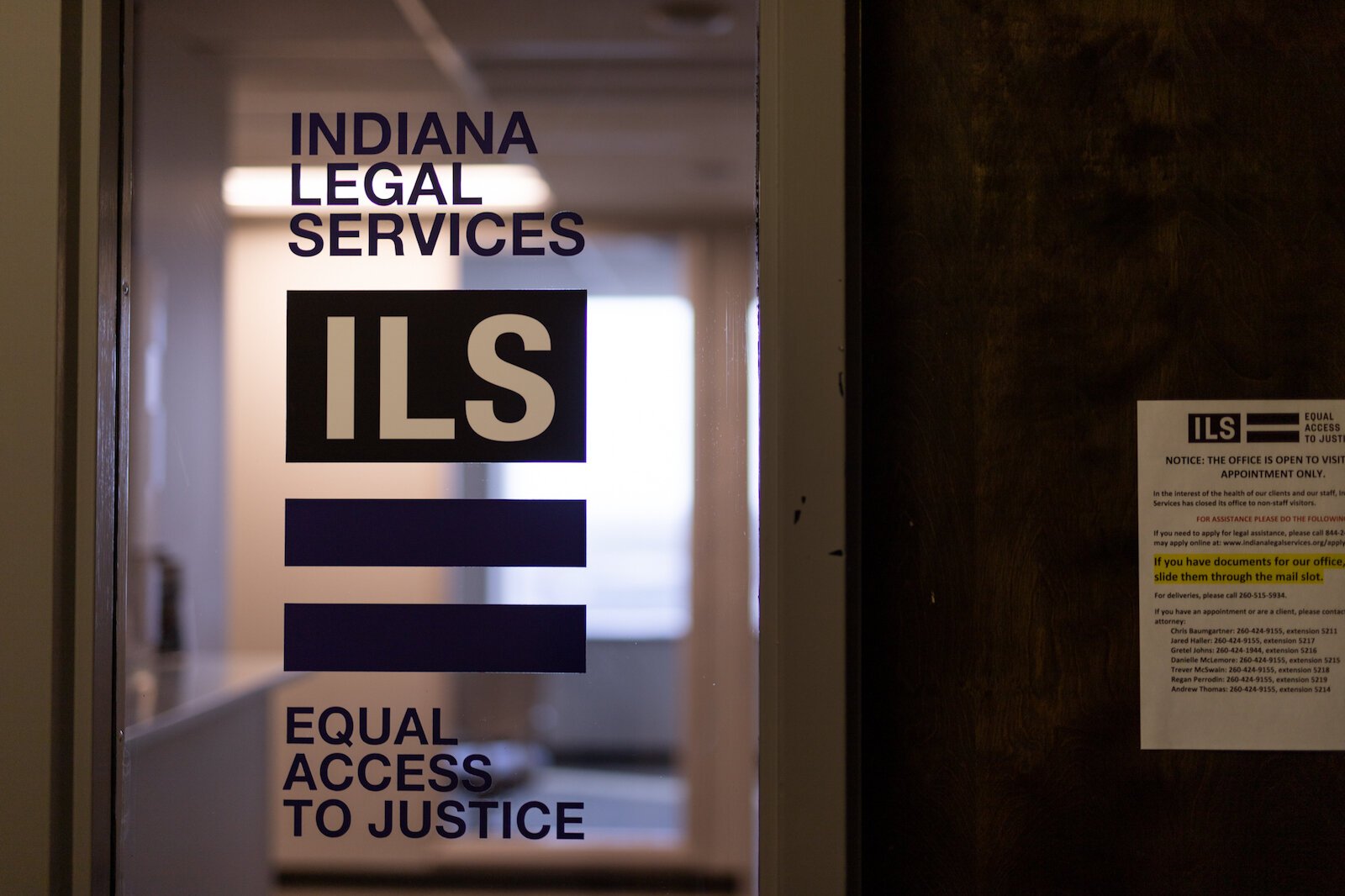
Despite this safeguard, Thomas says there were more than 700 eviction filings in Allen County from January to April 2021.
“So, as I said, the moratorium does not stop the filing of evictions,” he says. “It does not stop default judgment. So if the tenant doesn’t show up, they will be evicted. And it does not stop evictions for non-payment of rent or for other reasons.”
To further complicate matters, Thomas says we won’t know if the moratorium will be extended, likely until the end of June. In the meantime, this leaves many families and service agencies in limbo.
While there are rental assistance programs that could help renters if the moratorium expires, it’s unclear how far those funds will go, especially if they’re on a first-come, first-served basis. And if a tenant does, in fact, get evicted, the stakes can be high and follow them later in life—a scarlet letter of sorts.
“The issue is that it’s not just a public record—it’s a record that will stay there forever,” Thomas says. “So, unlike a bankruptcy, which would disappear around within 7-10 years from the deadline—evictions do not disappear, at least in Indiana. The record will just stay there because it’s a public record. It’s a civil case.”
Creating opportunities
While the complex issues surrounding moratoriums and evictions hurt renters and landlords alike, in Indiana, landlords have the upper hand in more ways than one.
According to the Indiana Public Policy Institute, Indiana remains one of eight states that does not protect tenants against landlord retaliation. The climate is even tenser for tenants with the passing of Senate Bill 148 by the 2020 Indiana General Assembly. This law prevents individual cities from taking action on landlord and tenant matters, including expedited evictions and regulating rental properties.
The imbalance of power between landlords and renters is something Cedric Walker knows well, as founder and CEO of the community development housing organization Joshua’s Hand.
Walker approaches the issue of eviction from a different perspective. Part of his organization’s mission is to make homeownership within reach for more Allen County residents through education and empowerment.
You could say Joshua’s Hand offers an alternative to the conventional housing market. In Walker’s opinion, the current housing landscape penalizes low-income people in Fort Wayne in the form of high monthly rent payments with no other options.
“What amazes me is a person can pay up to $1,200 a month for rent, but then they can’t get a mortgage for $800 a month,” he says.

With this in mind, Walker believes legislation that helps keep rent more affordable in Fort Wayne and give tenants more agency is necessary, especially given that Indiana is a pro-landlord state.
While changes in local, state, and federal policy will be needed to address underlying systemic challenges, Walker’s organization does offer hope to Fort Wayne residents with an eviction on their record in the meantime.
For example, through a partnership with Ideal Builders, aspiring homeowners have a chance to experience the dream of ownership via a new home build. Since the builder owns these properties, they make the rules, according to Walker.
“Depending on how far in the past (the eviction) was, they might give them an opportunity,” he says.
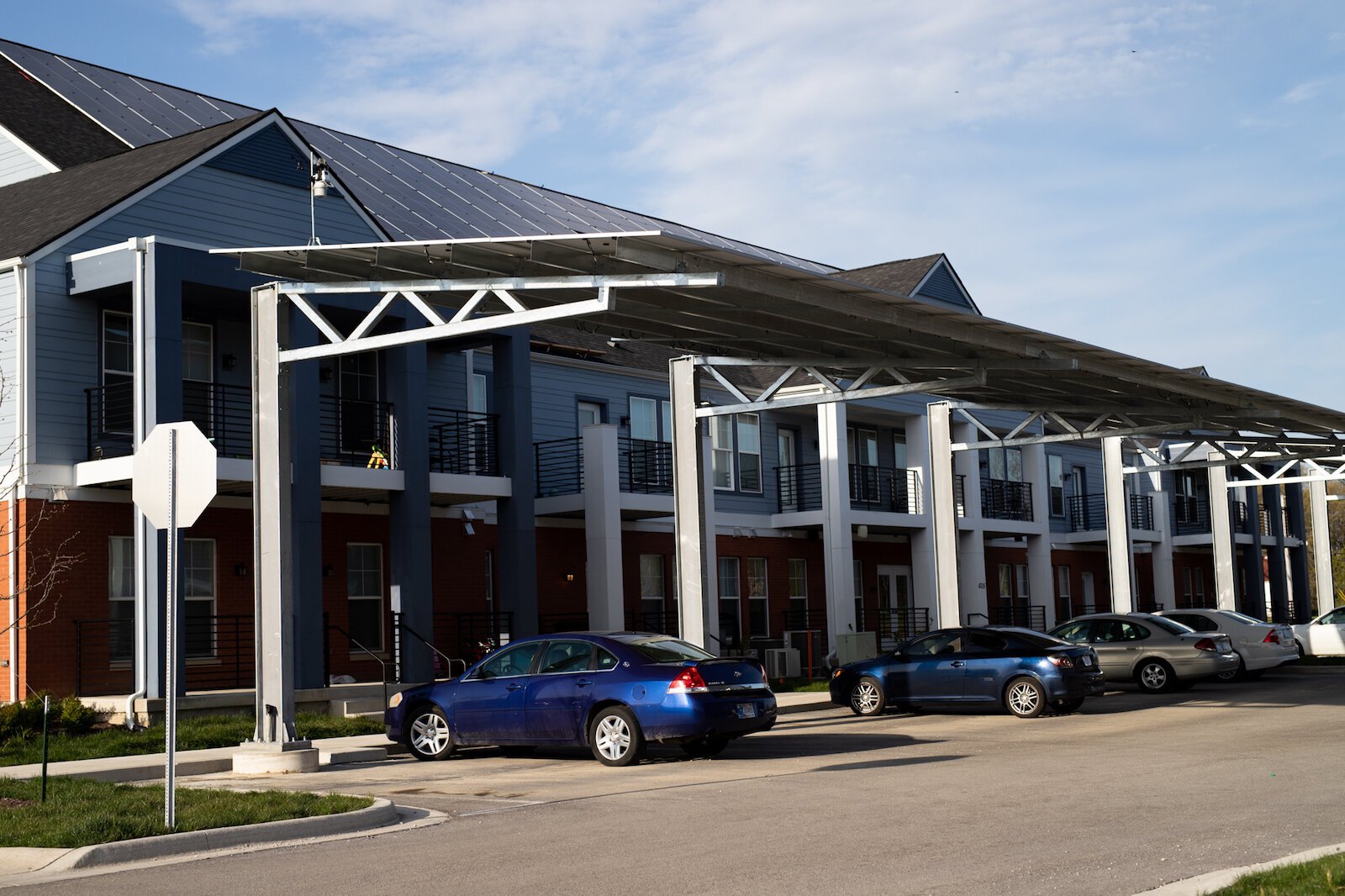
Looking to the immediate future, Walker expects the situation to get “ugly” once the moratorium is lifted, either this summer or later. He predicts mass evictions and many Fort Wayne residents ending up homeless.
But amidst this climate of fear and landlords holding power over tenants, his organization is challenging the status quo. Specifically, their programming offers a path forward for aspiring homeowners who might come from resource-limited households and have blemishes on their credit. For instance, a partnership between Joshua’s Hand, a church, and several financial institutions called the 700 Club, helps residents learn about ways to raise their credit scores to 700 and above.
Ultimately, Walker says it’s about giving people second chances–or in a lot of cases, a chance period. He’s candid about his own recovery from alcoholism and says that whether residents are facing a bankruptcy or eviction, they deserve the benefit of the doubt.
Sometimes, people make bad choices; other times, people only have bad options available to them.
“When you’ve got private equity dollars involved, you can create the opportunities for people,” Walker says.
Like Joshua’s Hand, Habitat for Humanity of Greater Fort Wayne, offers hope to those facing barriers to homeownership.
“Most of our families are coming from rental situations, but they have to be two years removed from bankruptcy, foreclosure, or eviction,” says CEO Andrew Gritzmaker. “So we are looking for families that have the stability to enter into the program. And at the end of it, they’re going to have to repay a 30-year mortgage at 0 percent, based on the appraised value of the house.”
While Habitat is more lenient than a traditional lender, Gritzmaker says when they’re vetting families, they look for what he refers to as “key indicators of stability.” These factors would dictate a family’s ability to meet their monthly obligation.
Income is one guidepost. According to Gritzmaker, they work with families who fall between a range of 30 percent of the average median income (AMI), set by guidelines from the U.S. Dept. of Housing and Urban Development (HUD). That translates to a single person making anywhere from an annual income of $17,000 to more than $40,000, who might not qualify for Section 8 housing, but still can’t afford a market-rate home.
In this way, organizations like Habitat are catering to a segment of the population known as the “missing middle,” who often fall between the cracks, as Brookshire mentioned. Ideally, there would be a variety of affordable and accessible housing options available to more people of all ages, abilities, incomes, and backgrounds in thriving and connected neighborhoods, according to the National Association of Homebuilders.
Regardless of a tenant’s specific monthly household income, Gritzmaker says Habitat’s program ensures that their housing expenses don’t exceed 26 percent of their gross income to keep things affordable on a scale.
“This assures that they’re typically able to make their payments regardless of life circumstances,” he says. “So if they lose the job, their car breaks down, or they face a medical emergency, they’re typically able to roll with the punches and still make their monthly mortgage payment.”
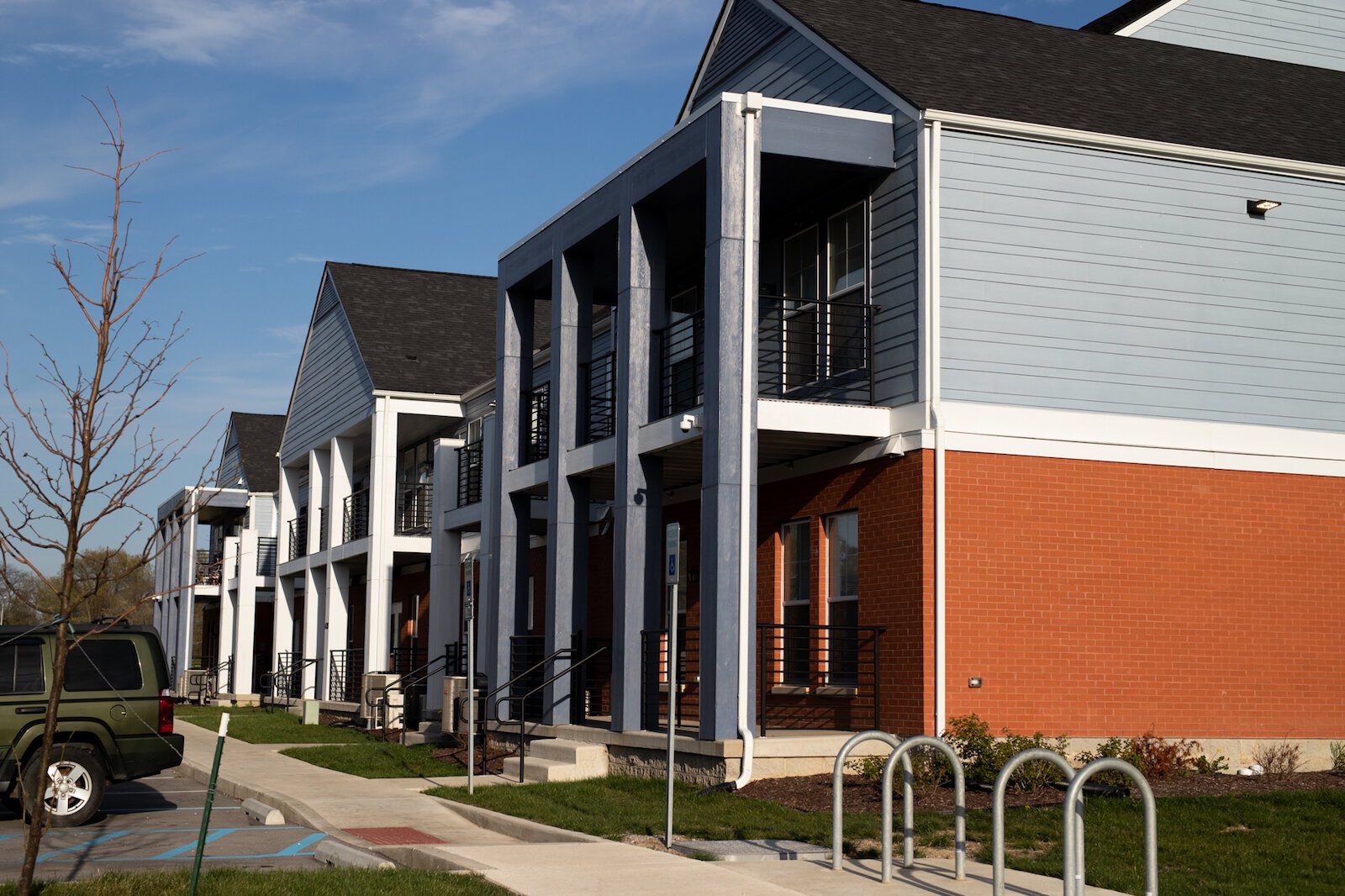
Lasting change
Along with creating affordable housing for the “missing middle,” Habitat is effecting change on a broader scale in Fort Wayne’s housing market, too. One way is by building new homes in zip codes that have high eviction rates.
“I think eviction affects us most because it introduces a lot of volatility in these neighborhoods that make them less desirable for families to lay down roots and reinvest,” Gritzmaker says.
By creating stable opportunities for homeownership in eviction-challenged areas, neighborhoods are able to strengthen and grow, which impacts cities and communities at-large.
“When children grow up in owner-occupied homes, we know empirically that they’re healthier,” Gritzmaker says. “They also have higher high school graduation rates and higher post-secondary completion rates. But I think perhaps the most startling thing is that kids who grow up in owner-occupied homes are exponentially more likely to own their own homes; thus, ending the generational poverty cycle.”
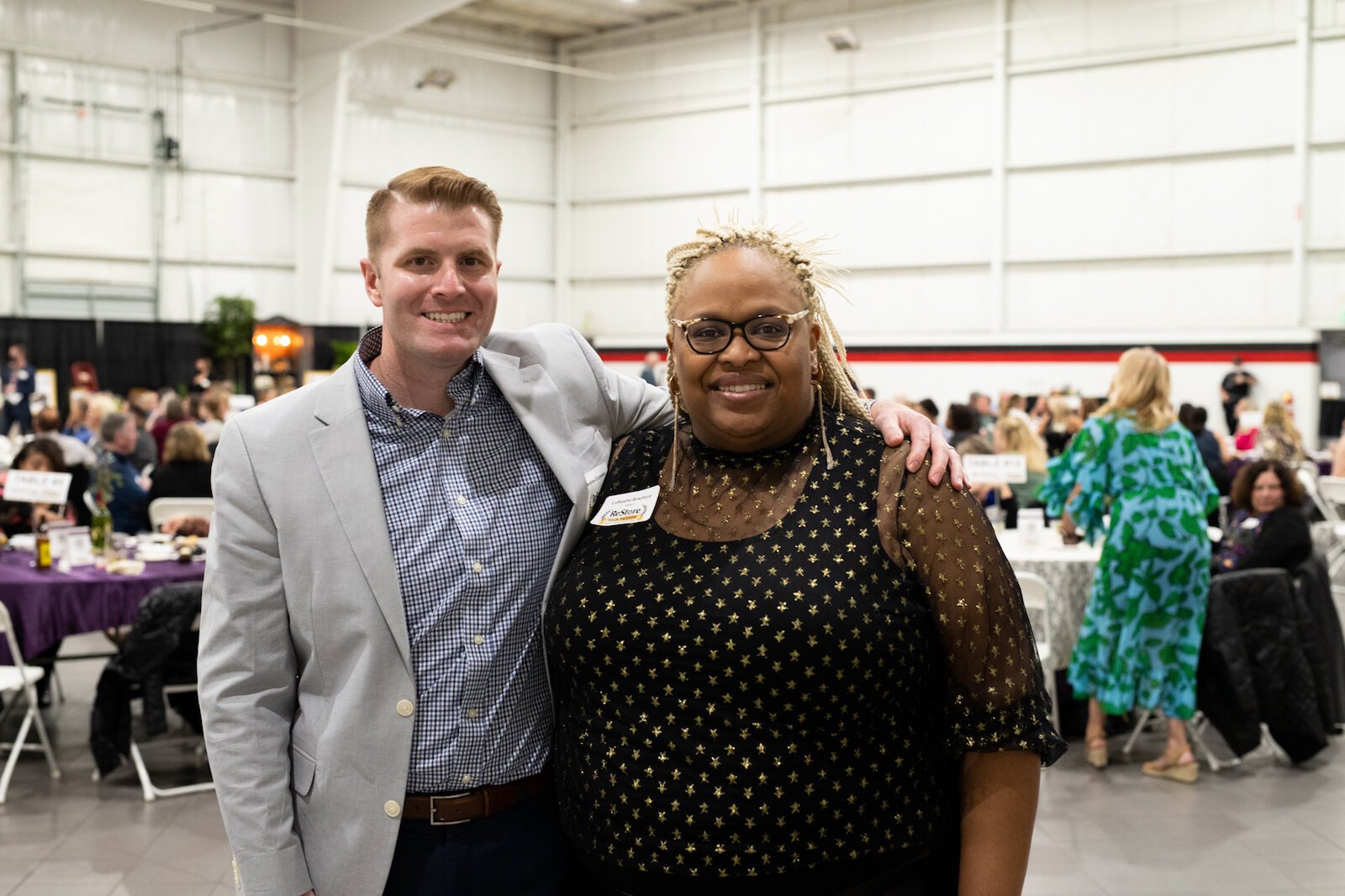
Janiece Norfleet knows this firsthand. She became a first-generation homeowner in 2012 with the goal of building generational wealth. Norfleet, who works as a HUD Certified Housing Counselor for the Fort Wayne Urban League, says nonprofits like hers have to think outside of government funding if they want to really make a difference on housing and evictions in cities.
That’s because government funding usually comes with restrictions and requirements like inflexible income limits, which can complicate progress. In some cases, it can even do more harm than good.
As for the moratorium on housing, the effects of lifting it are yet to be seen. But Brookshire believes that if there is a path forward, it’s going to be because service agencies like hers have stepped up and collaborated for the common good.
“The United Way of Allen County and its funding consortium have been a great partner,” she says. “The community really has done a great job of coming together and trying to address this crisis, especially at the beginning, when we were all dealing with (a lot and not) knowing which way to turn.”
This story is part of Input Fort Wayne’s Solutions Series, made possible by support from the United Way of Allen County, the NiSource Foundation, NIPSCO, Brightpoint, and others in Northeast Indiana. The 10-part, 10-month series explores how our regional community is addressing residents’ essential needs during the pandemic. Read the first story here.




